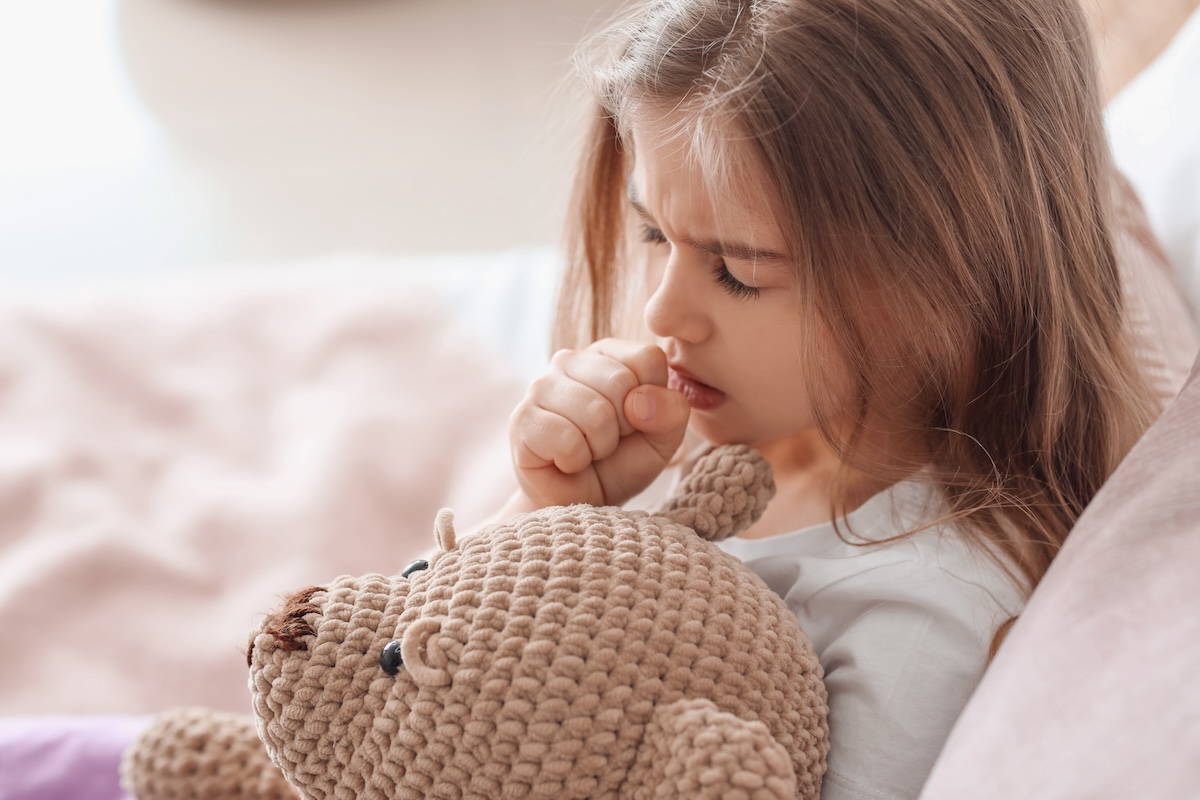As kids head back to school, the excitement of new beginnings often comes with an unfortunate companion—upper respiratory infections. The close quarters of classrooms and shared spaces mean increased exposure to viruses and bacteria. For parents, this means staying vigilant about their child’s health, especially as cold and flu season approaches.
In Memphis, where seasonal allergies already pose a challenge, upper respiratory infections can wreak havoc on children’s well-being. From lingering coughs to sinus congestion, these infections are common but can become more serious if left untreated. The good news is that knowing the signs and taking early action can make all the difference.
Let’s dive into the types of upper respiratory infections your child might encounter and how to prevent and manage them.
1. What Are Upper Respiratory Infections? Understanding the Basics
Upper respiratory infections (URIs) primarily affect the nose, throat, and sinuses. These infections can range from mild colds to more severe conditions like sinusitis and ear infections. Common culprits include viruses, but bacterial infections can also play a role in more persistent cases.
For children in Memphis, URIs often spike during the back-to-school season, when kids are exposed to new environments and are in close contact with their peers. The combination of viral transmission, environmental allergens, and fluctuating weather creates the perfect storm for infections to spread.
Symptoms of URIs can vary, but common signs include:
- Persistent cough
- Nasal congestion
- Sore throat
- Fatigue
- Mild fever
- Sinus pressure or headaches
Memphis parents should be aware of these symptoms, as untreated upper respiratory infections can lead to more severe issues, particularly in children with weaker immune systems or those prone to allergies.
2. Sinus Infections: A Deeper Look at Sinusitis in Children
One of the most common upper respiratory infections is sinusitis, or a sinus infection. Sinusitis occurs when the sinus cavities become inflamed, often due to a viral infection. In some cases, bacterial infections develop if the mucus remains trapped in the sinuses.
For Memphis children, sinus infections are especially common during the school year, when colds and allergies are prevalent. Symptoms to watch for include:
- Persistent nasal congestion
- Facial pain or pressure, especially around the eyes and forehead
- Thick yellow or green mucus
- Post-nasal drip leading to a sore throat
- Headaches, particularly in children older than six
If these symptoms last more than ten days, it may be time to consult a specialist like Dr. Rande Lazar, who can evaluate whether further treatment, such as antibiotics or nasal sprays, is necessary. Dr. Lazar emphasizes the importance of early intervention, as untreated sinusitis can lead to chronic infections that impact a child’s daily life and overall well-being.
3. Ear Infections: The Often Overlooked Companion to Upper Respiratory Issues
While not always associated with the term ‘upper respiratory infection,’ ear infections are often a direct result of URIs, particularly in younger children. The eustachian tubes, which connect the middle ear to the upper throat, can become blocked when upper respiratory infections cause inflammation and fluid build-up.
Ear infections can be especially painful for children, and signs may include:
- Ear pain or pulling on the ears
- Difficulty sleeping or increased irritability
- Fluid drainage from the ear
- Trouble hearing or responding to sounds
- Loss of balance
Memphis parents should be particularly cautious if their child experiences repeated ear infections. Dr. Rande Lazar often recommends placing ear tubes in children with chronic ear infections to allow fluid to drain and reduce the risk of hearing problems. Chronic ear infections can lead to long-term complications, so seeking timely care is essential.
4. COVID-19: Lingering Effects on Children’s Upper Respiratory Health
Even as the pandemic has subsided, COVID-19 continues to affect upper respiratory health, especially in children. While children may experience milder symptoms than adults, the virus can still lead to serious respiratory issues, especially if a child has pre-existing conditions or if they are exposed to new variants.
Symptoms of COVID-19 in children can mimic other upper respiratory infections, but parents should be on the lookout for:
- Fever or chills
- Shortness of breath
- Persistent cough
- Fatigue
- Sore throat
- Congestion or runny nose
COVID-19 has also been linked to lingering respiratory issues, such as a prolonged cough or fatigue, known as “long COVID.” If your child has recovered from COVID-19 but still experiences upper respiratory symptoms, it’s important to consult with Dr. Rande Lazar to ensure there are no underlying complications.
5. Prevention Tips: Keeping Your Child Safe from Upper Respiratory Infections
While it’s impossible to avoid all infections, there are steps parents can take to minimize the risk of upper respiratory infections for their children during the school year. Simple preventive measures can go a long way in keeping your child healthy and reducing the spread of germs in schools.
Dr. Rande Lazar recommends these key preventive strategies for Memphis parents:
- Encourage frequent handwashing, especially after touching shared surfaces
- Teach children to cover their mouths when coughing or sneezing
- Keep your child home if they exhibit symptoms of a URI to prevent spreading it to others
- Ensure your child stays hydrated and eats a balanced diet to support their immune system
- Consider flu shots and other vaccinations that can help prevent viral infections
By following these preventive steps, parents can reduce the likelihood of upper respiratory infections and keep their kids healthier throughout the school year.
When to Seek Expert Care from Dr. Rande Lazar ENT Memphis
Upper respiratory infections are common during the back-to-school season, but that doesn’t mean you have to navigate them alone. Recognizing the symptoms early and knowing when to seek expert care can help prevent complications and ensure your child stays healthy.
If your child experiences recurring symptoms like sinus pressure, ear pain, or a persistent cough, it may be time to schedule an appointment with Dr. Rande Lazar ENT Memphis. As a trusted specialist in upper respiratory health, Dr. Lazar can provide personalized treatment plans to address your child’s specific needs and keep them feeling their best throughout the school year.
Don’t wait—contact our Memphis office today to schedule an appointment or visit our website to learn more about how we can support your family’s respiratory health.




Comments are closed here.